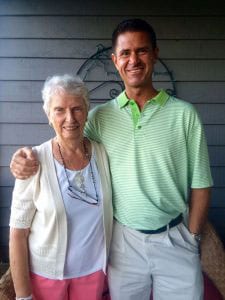While I truly believe that people are well-intentioned, their opinions and comments often miss the mark when it comes to what we experience living with dystonia, or any other chronic health condition. Some of the many things we hear include:
- “It’s all in your head.”
- “You’re just having a bad day.”
- “Everybody gets tired.”
- “You’re just depressed.”
- “You’ll just have to tough it out.”
- “If you would just get out more.”
- “There are people worse off than you.”
- “It can’t be that bad.”
- “If you would just exercise more.”
Most of these comments come across as judgmental, but I don’t think people are trying to hurt us. They just hurt sometimes because each statement feels like a harsh opinion not based in reality.
While I value the opinions of people in my life, I had to learn to be independent of the opinion of others. For my own sanity, I must live my life the best way I know how so I am most comfortable, regardless of what others think.
Someone’s opinion of me does not have to become my reality.
Whether we like it or not, people will judge and have their opinions about us and how we live our lives no matter what we do or don’t do. We are the same way. We all have judgments and opinions about everything. It’s the nature of being human. It just tends to hurt more when we are struggling each day with a limiting health condition.
When symptoms change and we look better or sound more upbeat because we have come to better accept our situation, there is an assumption by some that we are “healed.”
We may in fact be better, but maybe not the same as we once were. Those who don’t understand this might think we are back to our old selves and can do everything we once did. I hear this all the time. Because I look much healthier than I feel, people think I am healed and have expectations I am not always able to fulfill.
When this happens, people can become frustrated and sometimes even belittle me. This is because they wrongfully assume that by now (whatever time frame it is) I should be better or gotten over it already. I do not dismiss what they say because they sometimes have a helpful perspective I may not have thought about, but it is important to distinguish between helpful insights and judgmental opinions.

Pace yourself and let others know that you might need to take a break once in a while or that it might take a little longer for you to do something. Ask for their patience, but more important, be patient with yourself. Take responsibility for your condition in order to make the best decisions for yourself. This is your life. Own it and live it how you choose, independent of what others think.
Life is deep and simple.
What our society gives us is shallow and complicated.
Be a first rate version of yourself.
Not a second rate version of someone else.
About the Author: Tom Seaman is a dystonia awareness advocate and certified professional life coach in the area of health and wellness. He is also the author of the book, Diagnosis Dystonia: Navigating the Journey (2015). To learn more about Tom and get a copy of his book, visit www.diagnosisdystonia.com. Follow him on Twitter: @dystoniabook1 and check out another article of his on Patient Worthy here.






